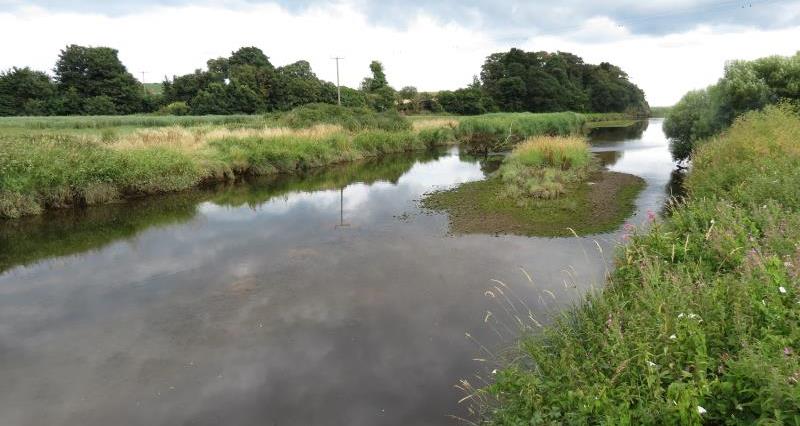Bathing water quality has improved significantly in the past 30 years. However, some designated bathing water sites remain at risk from pollution. By following a few simple steps, agriculture can help reduce the risk to bathing waters within any catchment, whether you are situated near the coast or at the very start of a watercourse.

Are you in an at‑risk catchment?
To find out if the river catchment you farm in influences bathing water, please check your farm’s location on the Environment Agency’s ‘Bathing Water Quality’ map.
Managing your farm business for bathing waters
You can help bathing water quality without compromising your ability to run a profitable business. The key is reducing bacterial numbers within watercourses. Fresh manures and slurries contain the highest levels of harmful bacteria, so it is vital to keep these away from water.
Bacteria die off quickly, so enough slurry storage and good manure management in yard and field will help reduce the risk. Within a catchment, you must keep livestock and manure/slurry – even small amounts - out of watercourses. Direct contamination is most likely to reach the beach.
What can I do?
- Efficient grassland production protects bathing waters - good soil and manure management restricts the amount of pathogen loss into your local watercourses while also benefiting your nutrient management and profit margin.
- Keep livestock out of streams and rivers - fence off watercourses and provide an alternative drinking source for livestock.
- Address any soil compaction issues - tackling compaction issues helps decrease nutrient loss on farm, but also increases grass growth. Poaching due to livestock is the easiest sign to spot.
- Use a nutrient management plan - efficient use of organic fertiliser protects water quality and makes financial sense. Spread slurry with care through changing your spreading method from broadcasting to a more direct surface application. This will both increase nutrient efficiency and help reduce potential pollution of local watercourses. Visit CFE partner initiative website Tried & Tested for guidance.
- Provide adequate storage for slurry and dirty water - ensure slurry storage facilities are adequate for stock numbers and allow you to store slurry to make best use of its fertiliser value. This will help save money on fertiliser bills. Storing slurry for longer will also allow bacteria to die and reduce the risk to bathing water quality. Ensure you manage storage to prevent leaks and spills. Stores should meet SSAFO regulation standards.
- Check the weather forecast - avoid spreading in wet weather, keeping off steep slopes. Don’t over-apply and use effective buffers strips. Avoiding spreading manure when rainfall is expected helps reduce the risk.
- Manage manure heaps - ensure field muck heaps are well away from slopes, watercourses and field drains. This allows time for faecal matter to breakdown and reduces the risk of leachate reaching a watercourse. In the yard, any runoff from manure heaps should be contained. Keep manure under cover if possible, to stop rainfall creating effluent from the heap; store muck on concrete with any runoff going to a compliant storage facility.
- Separate clean and dirty water in the farmyard - manage yard drainage – fix leaks, separate dirty and clean water, direct clean roof water into a drain to keep it away from fouled surfaces. Reducing the volume of clean water entering a slurry store will increase its storage capacity.
